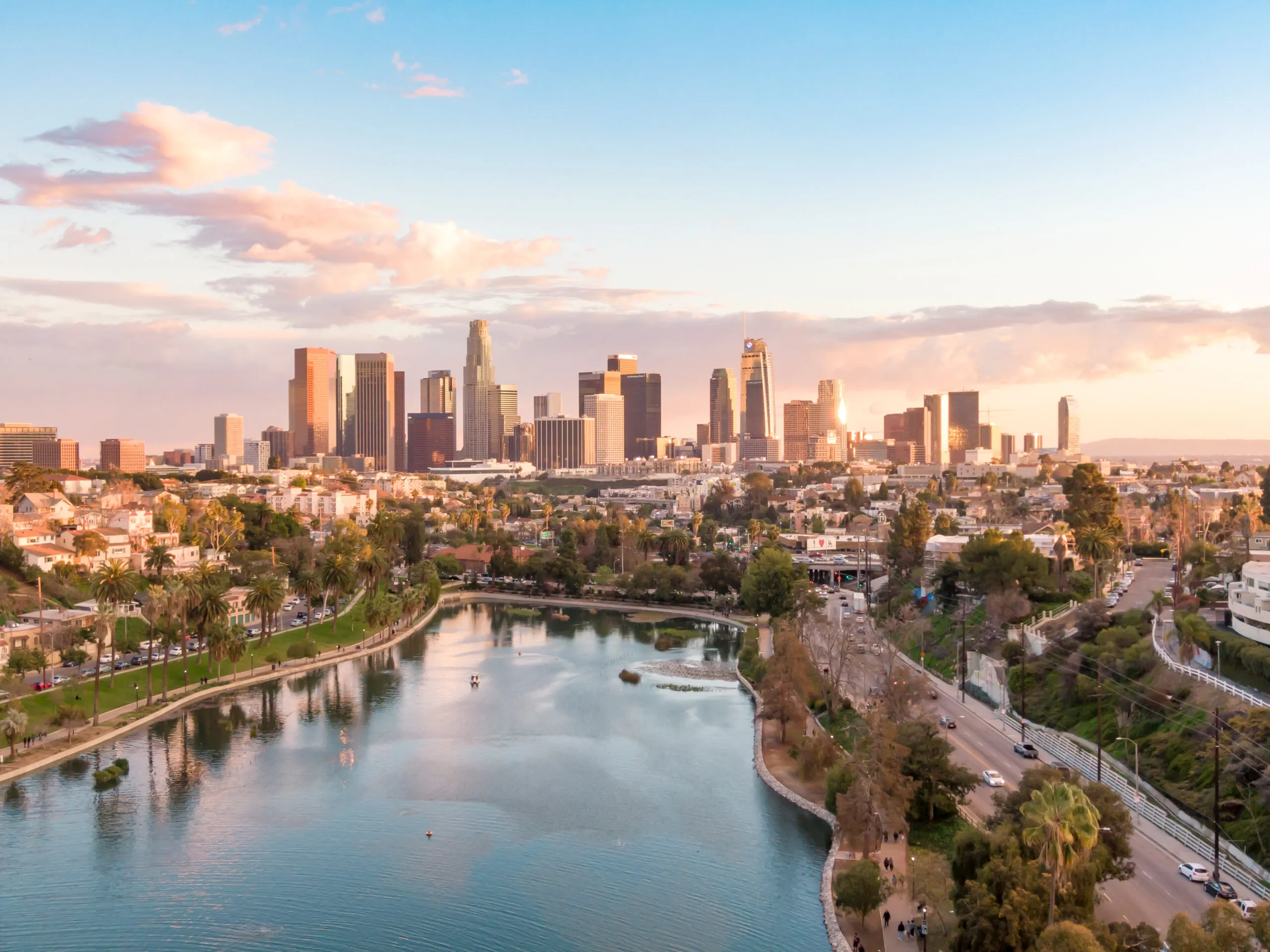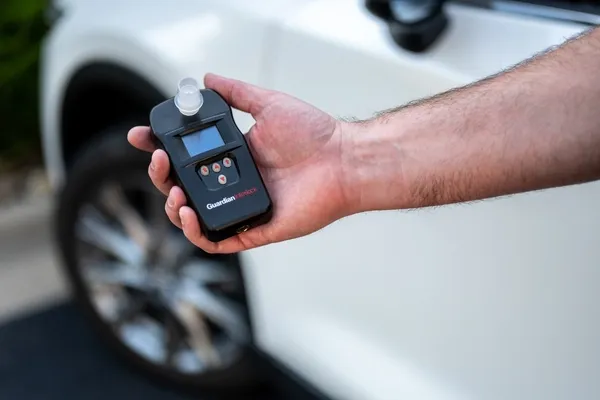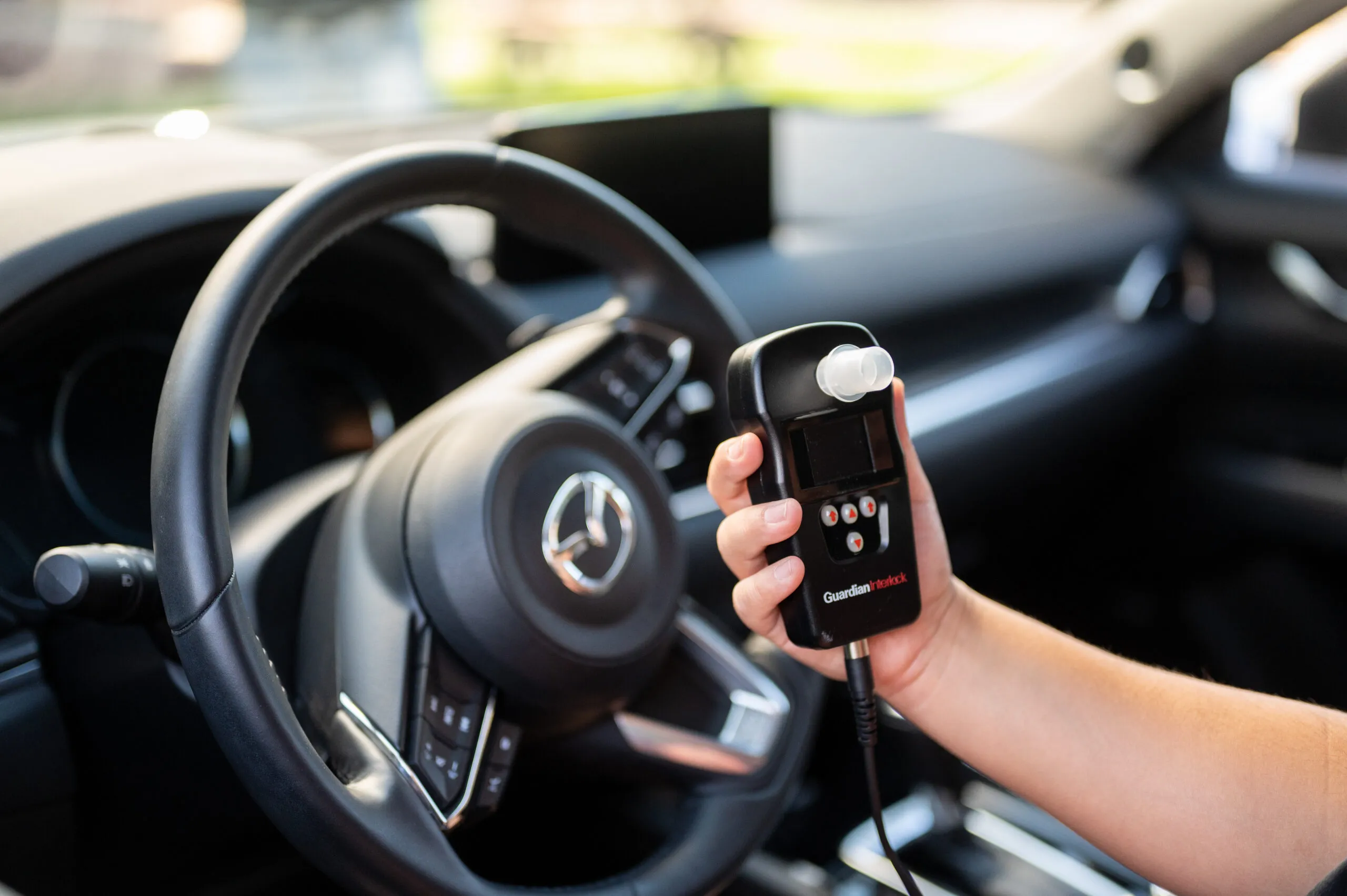
Ignition Interlock Laws in California
Get A Quote

DUI Laws in California
DUI and ignition interlock device (IID) regulations vary significantly across the United States, reflecting a patchwork of state-specific approaches to addressing impaired driving. Each state has different criteria for the installation of IIDs for DUI offenders, the duration of IID installation, procedures for IID removal, and penalties for tampering with the device. To ensure compliance with local laws, it is crucial to check with your state officials and continue reading relevant resources on the webpage for the most accurate and up-to-date information.
What to Know
- If you are arrested for DUI in California and your BAC is .08% or higher, or if you refuse a BAC test, your driver’s license will be immediately confiscated and you will face an administrative suspension. This action is separate from any criminal charges or penalties.
- You have 10 days from the date of your arrest to request a DMV hearing to contest the suspension. If you fail to request this hearing, your license will be automatically suspended after the 30-day temporary permit period.
- After serving the suspension period, you may be eligible for a restricted license allowing you to drive for specific purposes, such as work or school. Additionally, for DUI convictions, especially with repeat offenses or high BAC levels, an ignition interlock device (IID) may be required on your vehicle.
California DUI Resources
If you need to regain your license in California, Guardian can guide you through the process quickly and affordably.
Every situation and state is unique, please consult with your attorney or your state licensing authority to confirm your requirements and obligations.
The information provided on this website does not, and is not intended to, constitute legal advice; instead, all information, content, and materials available on this site are for general informational purposes only. Information on this website may not constitute the most up-to-date legal or other information. This website contains links to other third-party websites for the convenience of our readers. Links from Guardian Interlock to other sites, or from other sites to the LifeSafer, do not constitute an endorsement by Guardian Interlock.

Regain Your California License
Get back on the road today. Speak to a California expert now to get started.
Administrative License Revocation (ALR) Procedures
California, like many other states, has adopted Administrative License Revocation (ALR) procedures. This means that if your BAC is measured at .08% or higher, or if you refuse to take a BAC test, your driver’s license will be confiscated immediately. This action leads to an automatic administrative suspension or revocation of your license, independent of any criminal conviction. Even if you are not ultimately charged with a DUI offense, the ALR procedures can still result in a license suspension. The ALR process is separate from the criminal judicial penalties for DUI, which may include additional license suspension, jail time, community service, installation of an ignition interlock device, and mandatory alcohol and drug counseling.
You will receive a 30-day temporary license that allows you to drive while your ALR case is pending. During this 30-day period, you can request an administrative hearing to contest the suspension. This hearing will be conducted by a DMV administrative hearing officer. If you do not request a hearing within the 10-day window from the date of your suspension notice, your license will be automatically suspended on the 31st day for a period of 4 months. After this suspension period, you may be eligible for a restricted license which allows driving for essential purposes such as work, school, medical appointments, and other court-approved activities.
It is crucial to remember that the ALR process is distinct from the criminal DUI case, involving different authorities and procedures. Prompt action is necessary if you wish to challenge the ALR suspension effectively.
Judicial Procedures
In California, driving with a BAC of .08% or higher is illegal. If convicted of a DUI offense, courts are mandated to impose an ignition interlock device on the vehicle of any driver with a BAC of .08% or higher, regardless of whether it is their first offense.
Verify your eligibility
Ignition interlock device requirements can be difficult to understand. Verify your eligibility today!
License Revocation, Fines, and Jail in California
| Offense | Jail Time | Fines | License Revocation | IID Duration | Community Service | Program | Probation |
|---|---|---|---|---|---|---|---|
| First Misdemeanor | up to 6 months | $390 to $1,000, plus additional penalty assessments and court fees | about 6 months | 6 months | up to 6 months | mandatory DUI education program, usually 3 months | 3-5 years |
| Second Misdemeanor | 96 hrs. – 1 year | $390 to $1,000, plus penalty assessments and court fees | 2 years | 1 year | 1-4 months | mandatory DUI education program, usually 18 months | 3-5 years |
| Third Misdemeanor | 120 days – 1 year | $390 to $1,000, plus penalty assessments and court fees | 3 years | 2 years | 1-6 months | mandatory DUI education program, usually 30 months | 3-5 years |
| Fourth* Felony | 16 months – 3 years | up to $5,000, plus additional penalty assessments and court fees | 4+ years | 3 years | 1-6+ months | mandatory DUI education program, often 30 months or more | 3-5 years |
| Felony* | 16 months – 3+ years | up to $5,000, plus additional penalty assessments and court fees | 5+ years | 3+ years | may be ordered in addition or instead of jail time | extensive treatment programs, often exceeding 30 months, may be mandated | 3-5 years |
*Please note that this includes a DUI with aggravating factors.
Each case is unique, so consulting a legal professional for personalized advice and the most current legal information is crucial.

California IID Update
From January 1, 2019, till December 31st, 2025 SB1046 requires an ignition interlock to be installed immediately after a DUI. SB1046 eliminates the time a person must have a suspended license before he or she can apply for a restricted license —a driver can apply for a restricted license before conviction after installing an interlock and meeting other requirements without completing their license suspension or revocation period.